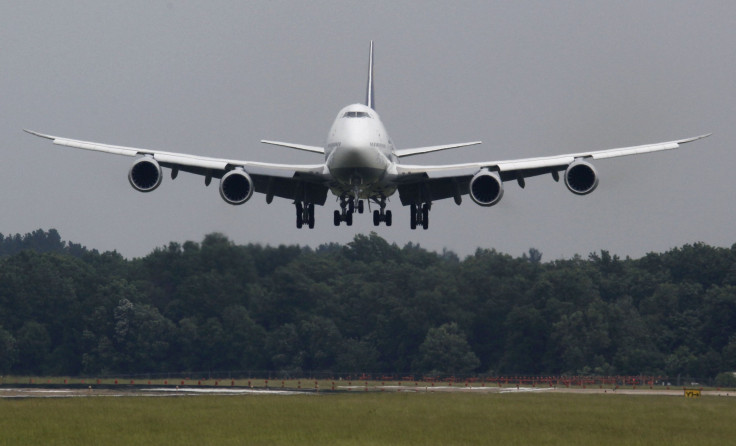Ebola Outbreak: Five U.S. Airports To Begin Enhanced Screening Of West Africa Flights

Five of the busiest international airports in the U.S. are now screening or will begin screening passengers this week from the three West African countries hardest hit by Ebola. Screeners from the Centers For Disease Control and the Department of Homeland Security will handle the intensified screening procedures.
Passengers arriving from West Africa at Washington Dulles International, Atlanta’s Hartsfield-Jackson, Newark’s Liberty International, Chicago’s O’Hare and New York’s John F. Kennedy International airports will undergo more thorough scrutiny. JFK will begin screening on Saturday, while the other four will begin next week. Those airports receive 94 percent of U.S.-bound travelers from Guinea, Liberia and Sierra Leone, according to the CDC.
Enhanced U.S. entry screening includes educating travelers about symptoms, asking questions to determine risk and taking temperatures. Screeners will check all passengers for symptoms of Ebola. The CDC will determine whether to allow a passenger to continue to travel or send that passenger to a doctor or hospital for testing and treatment if screeners determine the traveler is potentially infected.
New York’s Port Authority, which operates JFK and Newark’s Liberty International, began handing out enhanced protective gear to its 2,000 or so police officers this week. FDNY Commissioner Daniel Nigro said Tuesday that he’s giving the task of responding to potential Ebola 911 calls to first responders with special “hazardous tactics” training.
The CDC will continue to assist screening outbound passengers from the three hardest hit West African nations. Authorities have screened passengers from those countries for the last two months with a process essentially the same as the enhanced entry screening that will be put in place in the coming week.
The CDC said 77 of the 36,000 people screened over that time period were held from flying and none of them were diagnosed with Ebola. Thomas Eric Duncan, the first person to bring Ebola to the United States naturally, did not show symptoms during his flight from Liberia to Dallas, where he died on September 8.
“We work to continuously increase the safety of Americans,” said CDC Director Tom Frieden. “We believe these new measures will further protect the health of Americans, understanding that nothing we can do will get us to absolute zero risk until we end the Ebola epidemic in West Africa.”
The CDC issued a solicitation seeking a contractor to provide screeners and contact tracers at “all major airports in the United States and perhaps some airports overseas,” on Tuesday, but it was cancelled by Wednesday morning. The CDC did not expand further on the cancellation when asked by IBTimes.
The new plans were announced hours after Frieden announced that Amber Joy Vinson, the second Dallas nurse to contract the viral disease after treating Duncan flew to and from Cleveland and Dallas before showing symptoms on Tuesday.
© Copyright IBTimes 2024. All rights reserved.





















